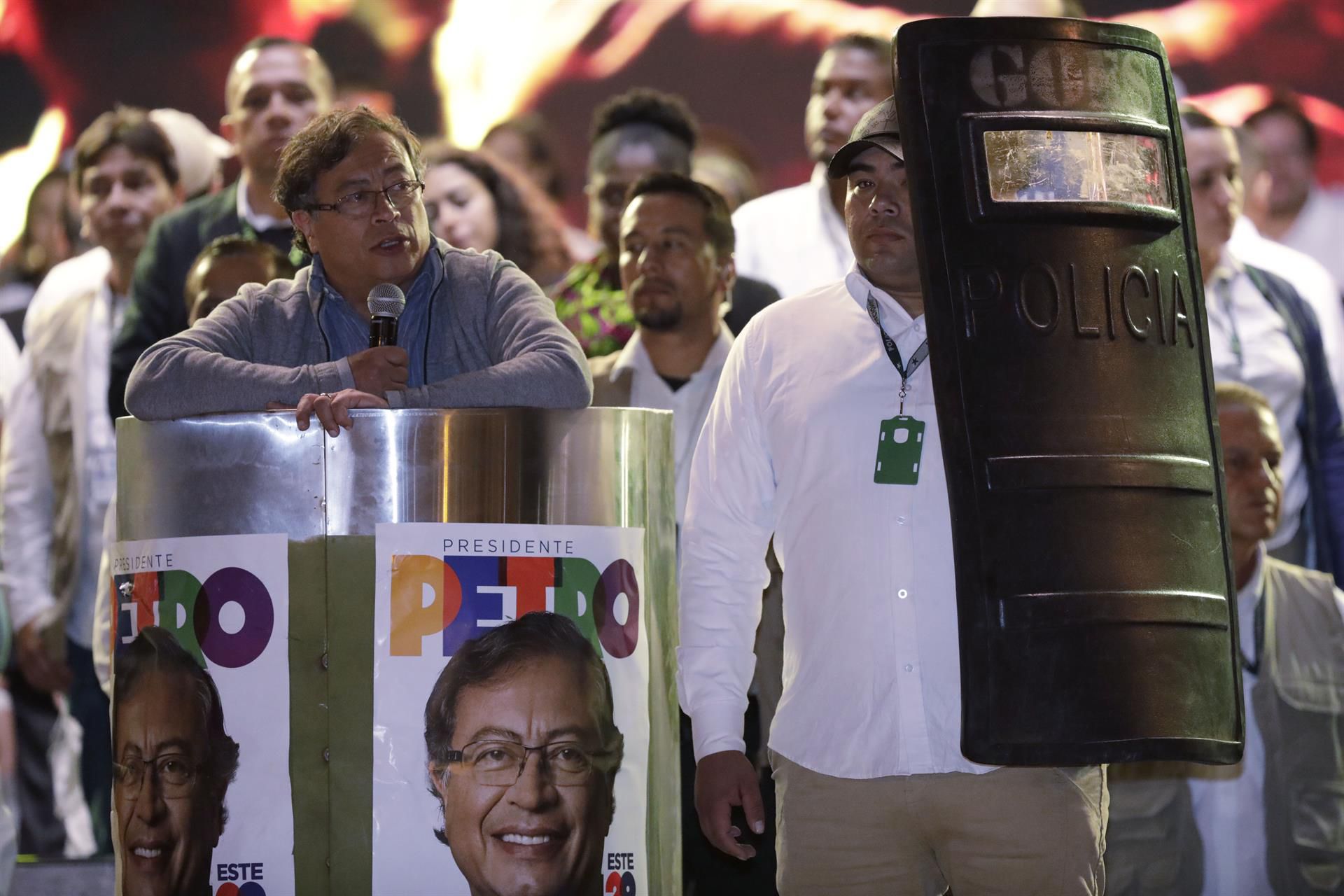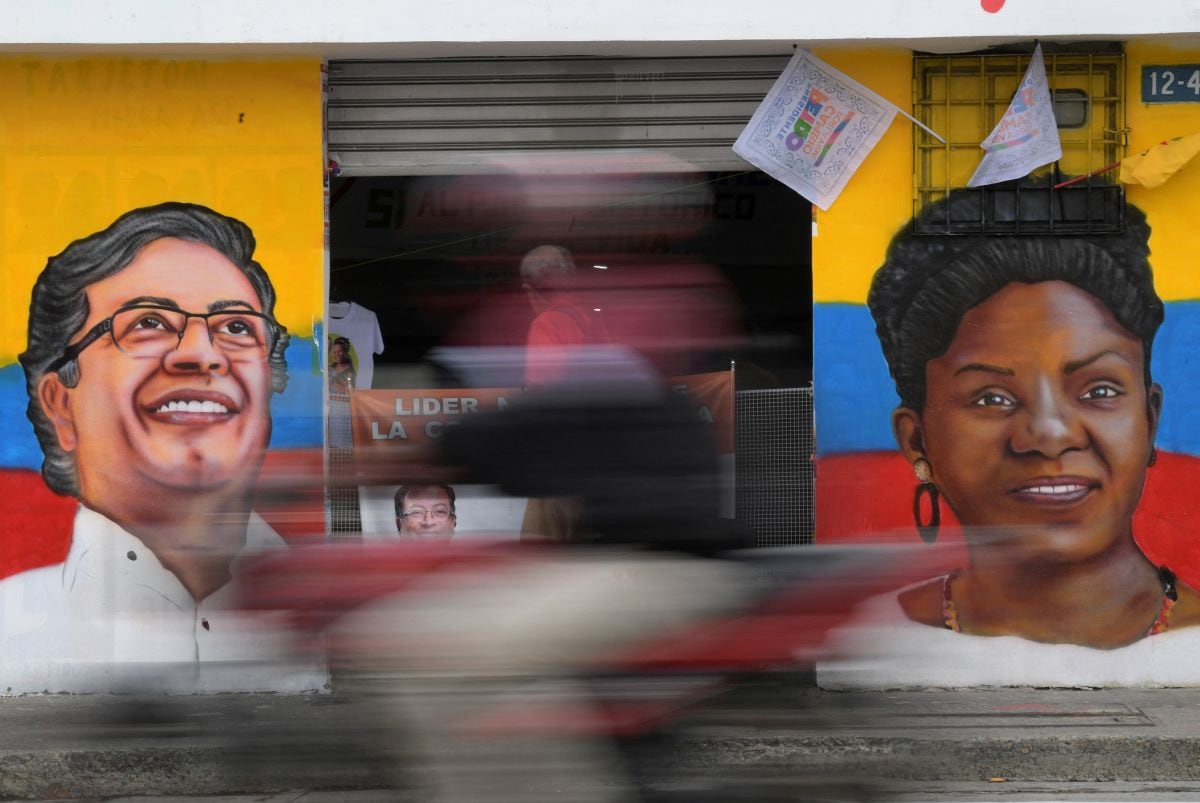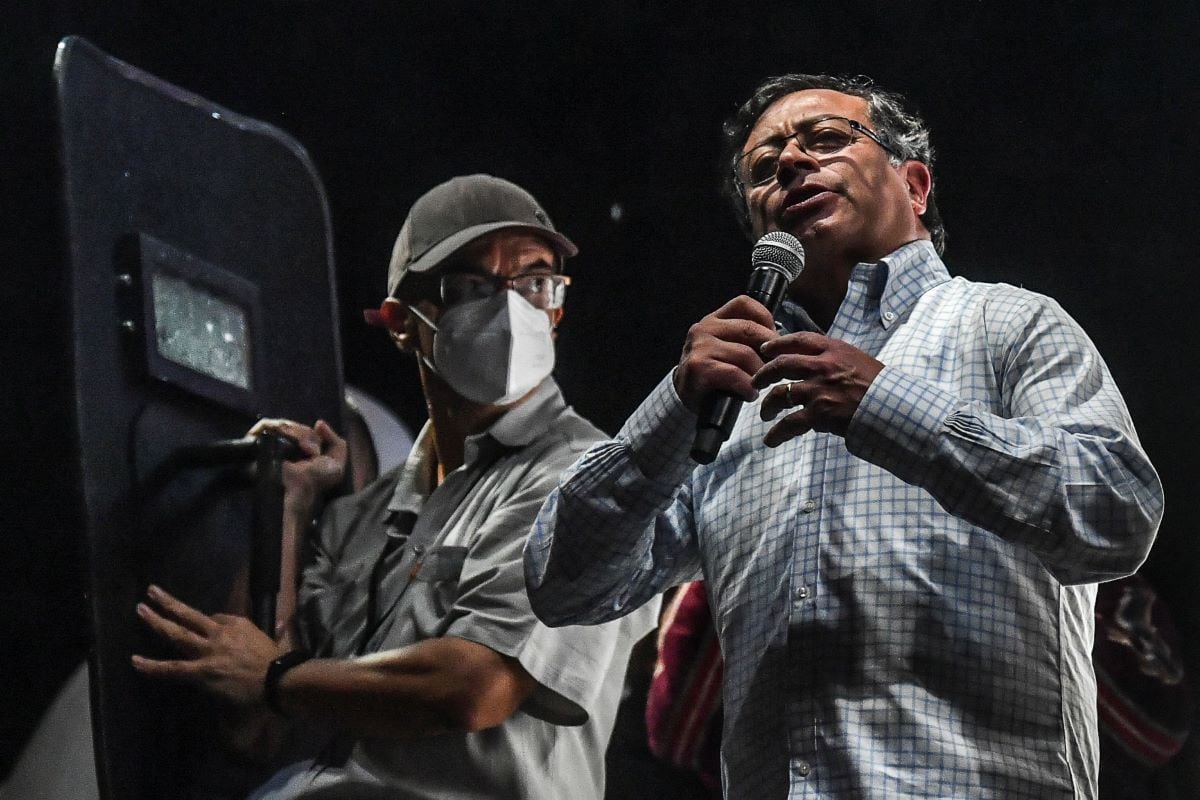Despite having belonged to the M-19 guerrilla, Gustavo Petro he prefers to be called a revolutionary rather than a guerrilla because leading revolutions is what he has always felt comfortable with and leading the left to the Presidency of Colombia It is the one that raises in these elections.
This is the third time he has tried, but this Sunday, according to the polls, Petro is closer than ever to winning presidential elections, although it is likely that he will have to risk it in a second round. Only his nemesis, former president Álvaro Uribe Vélez, has managed to win in the first round in Colombia.
LOOK: 7 keys about the presidential elections in Colombia this Sunday, May 29
Born in a town in the Caribbean department of Córdoba, Ciénaga de Oro, in 1960, 62 years ago, He grew up and studied in the interior of the country, in Zipaquirá, an Andean town near Bogotá. He is the eldest of three brothers, from a middle-class family, with a father from the coast and a mother from the interior.
That mixture also survives in his character: shy, quiet and proud personally, as he is described, but a great speaker and comfortable when he takes the stage of one of the public squares that he usually fills these dayswhere he dazzles his listeners with bombastic phrases and captivating speeches.
HIS STEPS THROUGH THE GUERRILLA
“One life, many lives” the autobiography that he published a few months before the campaign, shows that he has always felt out of placelonely, left aside and also of a certain arrogance with which he has overcome many situations in his life.
LOOK: Presidential debate in Colombia: Why do the candidates distrust the National Registry?
At the La Salle de Zipaquirá school, the same one where Gabriel García Márquez passed, he answered the priests with haughtiness and there he began militancy, reading Marxist intellectuals, until in 1978, at the age of 18, he decided to join the M-19, where he mainly carried out urban liaison tasks and not so much armed struggle, until his disarmament in 1990.
Of those 12 years that he lived in the ranks of “eme” under the name of “Aureliano”, as the character in “One Hundred Years of Solitude”, three he spent in hiding and another two in prison. They captured him in 1985 in Bolívar 83, the popular neighborhood of Zipaquirá that he helped found, and tortured him like so many guerrilla members at the time.
LOOK: Gustavo Petro answered what he would do if he believes there is fraud in the presidential elections in Colombia
“I didn’t feel the pain of torture until I got to jail. During the dark days of the beatings, I never felt physically bowed down, although psychologically it was difficult because I felt that somehow my life had changed, ”he describes in his autobiography.

The seizure of the Palace of Justice, one of the darkest episodes of the M-19, took Petro to jail and due to his position, very low in the organization, he could know little about that attempted seizure that ended up being overwhelmed by the Army. and with almost a hundred fatalities.
THE MOST BRILLIANT CONGRESSMAN
Petro, who in 2022 wants to be “his president”, as he proclaims at each rally, is far from those years and his stage as a parliamentarian will surely weigh more on him. He never felt comfortable with weapons, but he did feel comfortable with words, with which he defended himself in the House of Representatives and in the Senate.
There he became “one of the most brilliant congressmen Colombia has had,” as he is usually called, and gained popularity in the early 2000s for his denunciations of the links between politicians and paramilitaries in what was considered “parapolitics,” becoming also a headache for former President Uribe and getting several people prosecuted.
The first threat that Petro received, of the many that would come later and that now have him going up on stage surrounded by escorts and with one of the largest security schemes in the country, was in 1994 and forced him to go into exile in Belgium.

Petro recounts with bitterness his time in Brussels, away from everyone, and with depressive episodes that he overcame by studying a specialization in the Environment at the University of Leuven, which he added to the degree in Economics that he studied at the Externado de Colombia University, while he was a militant in the M-19.
BACKWARDS IN THE MAYOR’S OFFICE
In 2011 he was elected mayor of Bogotá by the Progressive formation. “I am the candidate of progressivism”he repeats often, to get out of the “lefts” box.
Those who worked with him in the Mayor’s Office say that he is not easy to deal with, that he is not very given to collaborating in a team and that he makes decisions alone. That prompted numerous resignations and the change of more than fifty senior managers in the four years of management.
His character of not being afraid of confrontation also earned him a dismissal by the Attorney General’s Office, which for his decisions in the management of garbage collection in the city wanted his political death and that the Inter-American Court of Human Rights revoked.
Petro, married and father of six children with different women, arrives at his third attempt for the Presidency away from several of his great fellow travelers, and without many of the “revolutionary” ideas he evoked.

He is now doing it together with some more pragmatic and less idealistic campaign partners, such as Senator Armando Benedetti, who has gone through numerous formations of different stripes and is one of his closest people right now. Also with the lawyer and Afro activist Francia Márquez, who has collected the discontent of the streets and rescued supporters tired of Petro’s personalism.
In 2010, in his first attempt with the Polo Democrático, he got just 1.3 million votes and in 2018, with more than 8 million, he was one step away from reaching Casa Nariño. Now, after leaving some of the most radical ideas of the left behind and wanting to join more traditional forces —those he has always criticized for their corruption and patronage— he hopes that the third time will be the charm.
Source: Elcomercio

:quality(75)/cloudfront-us-east-1.images.arcpublishing.com/elcomercio/6HHZ6CEH35ESLP4RMX7UJSJNCU.jpg)

:quality(75)/cloudfront-us-east-1.images.arcpublishing.com/elcomercio/7V2Q6F3HZ5CHVLDO2LFINKUWCI.jpg)

:quality(75)/cloudfront-us-east-1.images.arcpublishing.com/elcomercio/KN76ID4A6NE4PFE4T2X6JP662A.jpg)

